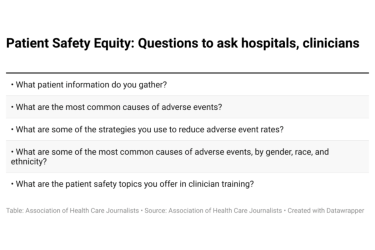
In rural areas, the federal Centers for Medicare & Medicaid Services designates more than 1,300 hospitals as being “critical access hospitals.” So designated, these facilities get a bit more in reimbursements to ensure that Americans outside of cities and suburbs can get the care they need without having to travel too far. In August, a report from the Office of Inspector General of the federal Department of Health and Human Services recommended that 80 percent of these facilities be decertified.
When he learned of the report, David Wahlberg, a health/medicine reporter for the Wisconsin State Journal, interviewed administrators at critical access hospitals in Wisconsin and found that the administrators believed closing these hospitals would have a detrimental effect on care for Medicare patients.
The issue of payment for these facilities is important in every state, but particularly in Wisconsin, which has 58 critical access hospitals, more than most states. Wahlberg also found that, while critical access hospitals will not be decertified soon, they could be in the future.
If any of these facilities are decertified, he writes, reporters are likely to find that hospital administrators will complain that they need the extra funds (despite some having healthy operating margins) and that their patients are older and sicker than those in other hospitals. Health care journalists also will hear that the local economies need these facilities in part because they are among the largest employers in small towns.
Read about how Wahlberg reported on the issue in his state and his suggestions of stories that reporters should be covering. As he says, “The potential effect of this proposal is worth examining in almost any health care reporter’s geographic area.”








